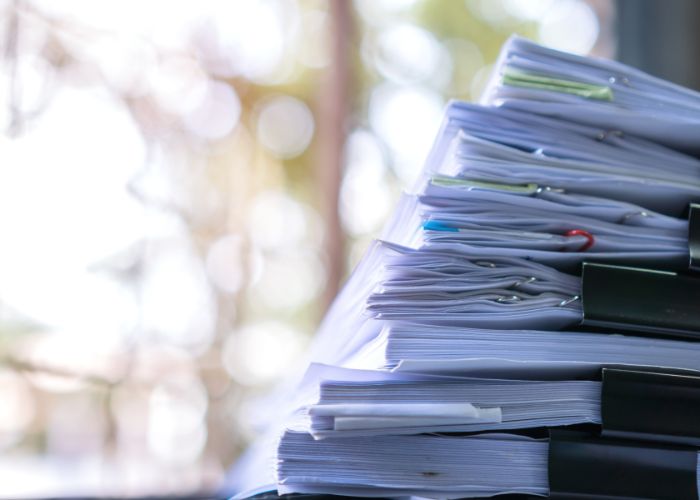Document management is more than a task; it’s a critical function of security and compliance. As we dive into the essential practice of proper legal document disposal, you’ll discover why every scrawl, stamp, and signature follows a life cycle that ends secure destruction. For anyone who holds onto sensitive documentation, the ramifications of lax protocols can range from identity theft risks to violations of industry-specific regulations. Here are the proper ways to dispose of legal documents.
Understanding the Risks of Lax Document Disposal
Legal documents are the cornerstone of important transactions, confidences, and commitments. They are also preferred targets for identity thieves and malicious actors.
Improper disposal of these records invites risks that have long-standing implications, from tarnished reputations to financial damage. Notably, documents you must shred to avoid identity theft include personal information, financial records, or anything with identifiable details.
The Nitty-Gritty of Disposal Compliance
Naturally, the next questions arise: what laws govern document disposal, and what are the penalties for non-compliance? Entities such as the Health Insurance Portability and Accountability Act (HIPAA) and the Fair and Accurate Credit Transaction Act (FACTA) outline specific requirements for secure destruction of certain information. Violations of such regulations lead to hefty fines and even criminal charges.
Making Secure Disposal Part of Your Routine
Consistent and secure destruction practices are your best allies against data breaches. This goes beyond the act of shredding or incineration; having a clear document retention policy that aligns with legal guidelines is vital. Regularly auditing this policy to reflect current business operations and legal requirements ensures you’re always a step ahead in maintaining compliance.
The Digital Frontier: Disposing of Electronic Files
Knowing how to dispose of electronic documents is equally pressing. Securely deleting files, using data wiping tools, and encryption are practices synonymous with responsible digital record management. These strategies safeguard your data, whether stored on local hardware or in the cloud.
Ethical Disposal for the Legal Fraternity
For those in the legal profession, the ethical duty to maintain client confidentiality and the security of information is uncompromising. From secure storage to working with reputable destruction services, legal professionals must navigate a more robust framework to ensure they meet or exceed their obligations.
Properly disposing of legal documents, regardless of environment, is a vital aspect of data management and secure operations. These efforts are not specific to businesses or entities, and anyone who holds onto sensitive information should consider the benefits of proper document disposal. By recognizing the importance of secure destruction methods, adhering to laws and regulations, and integrating best practices into your organizational policies, you can protect the integrity of highly sensitive information and entities.

















